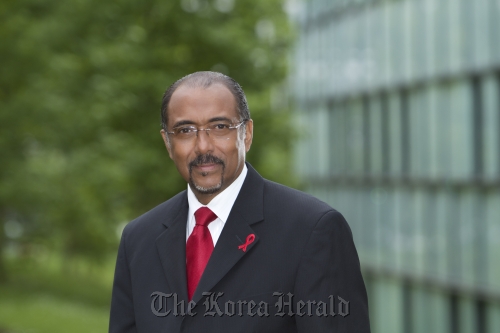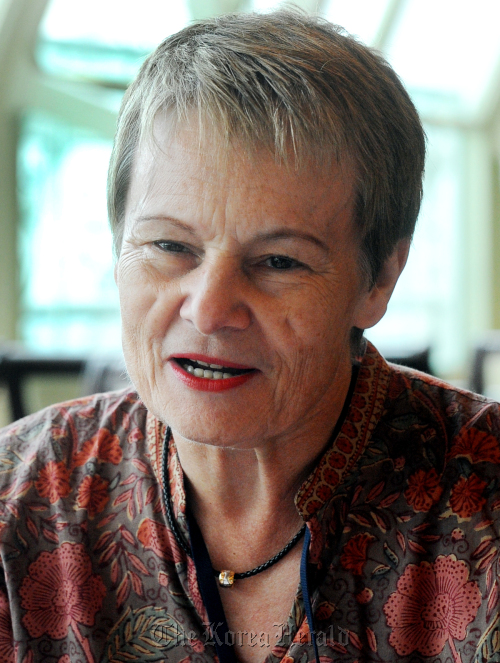BUSAN ― Leaders at the forefront of global endeavors to combat HIV/AIDS called on those suffering from the epidemic to break their silence and speak out during an international forum here last week.
They also stressed that an embracive social, legal environment is crucial to help them come out and gain access to medical services, support and care, urging the international community to unite to stamp out stigmas attached to the virus.
“I think HIV is still a disease of stigma, discrimination and prejudice. Even though we have managed to break the conspiracy of silence, we still have problems of what I call epidemics of laws,” UNAIDS Executive Director Michele Sidibe said during an interview with The Korea Herald on Saturday.
 |
Michele Sidibe, UNAIDS executive director |
“Laws are really impacting access to services for people living with HIV. There are discriminatory laws which are criminalizing men having sex with men, injecting drug users, commercial sex workers. They hide themselves and don’t have access.”
He was in Busan for the 10th International Congress on AIDS in Asia and the Pacific, which kicked off its five-day run at BEXCO in this southern port city on Friday.
UNAIDS is a U.N. partnership that leads efforts to achieve universal access to HIV prevention, treatment, care and support. With the AIDS Society of Asia and the Pacific, it is co-hosting the ICAAP10.
Sidibe also pointed out that young people infected with the virus should be allowed to actively engage in the fight against HIV while stressing political leaders and other people in key decision-making positions should play a more active role.
“We need to look at and create new generations of young leaders in order to make young people not just passive beneficiaries of programs, but actors of change.”
 |
Ursula Schaefer-Preuss, vice president of Asian Development Bank |
Ursula Schaefer-Preuss, vice president of the Knowledge Management and Sustainable Development at Asian Development Bank, also underscored the need for HIV-positive people to be more vocal to bring about meaningful changes.
“The pandemic is seen as a really big problem so people don’t want to speak about it. They don’t want to disclose they are infected. They don’t know where to go, whom they can address to get society more aware that this is a serious disease, but that this is not something that they should hide away,” she said in a separate interview.
“We are all human-beings. I think we really have to do everything we can to help people who have social problems and economic problems. I think HIV is, in a way, (linked to) social, economic problems. So we have to find a way out and as one can see in the Asia-Pacific region, it is possible.”
ADB co-sponsoring ICAAP10 has been a major investor in this Asia-Pacific region with strong relationships with finance, planning and infrastructure sectors to influence HIV/AIDS strategic policy agenda in the region and at country levels.
She also appreciated the Seoul government’s efforts to host this event.
“I would like to thank the Korean government for hosting this important conference. I know it was not easy to do this all the many different challenges involved,” she said.
By Song Sang-ho, Korea Herald correspondent (
sshluck@heraldcorp.com)









